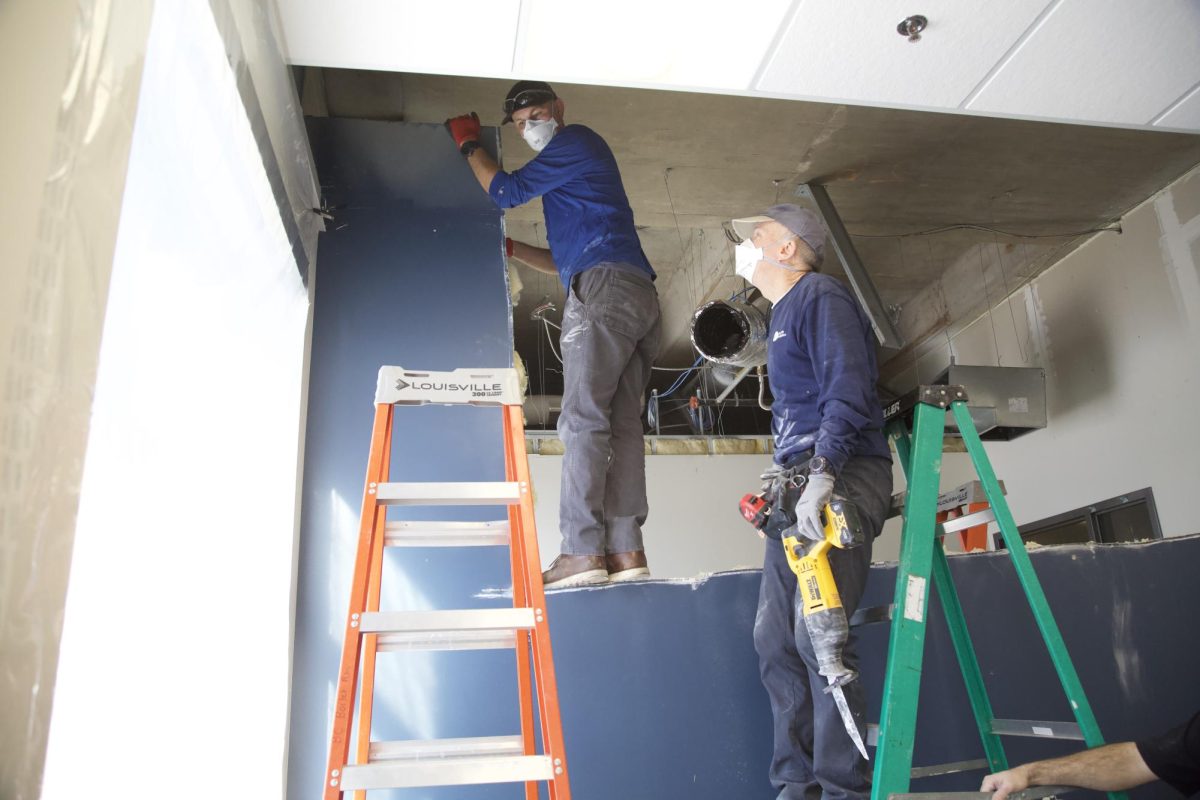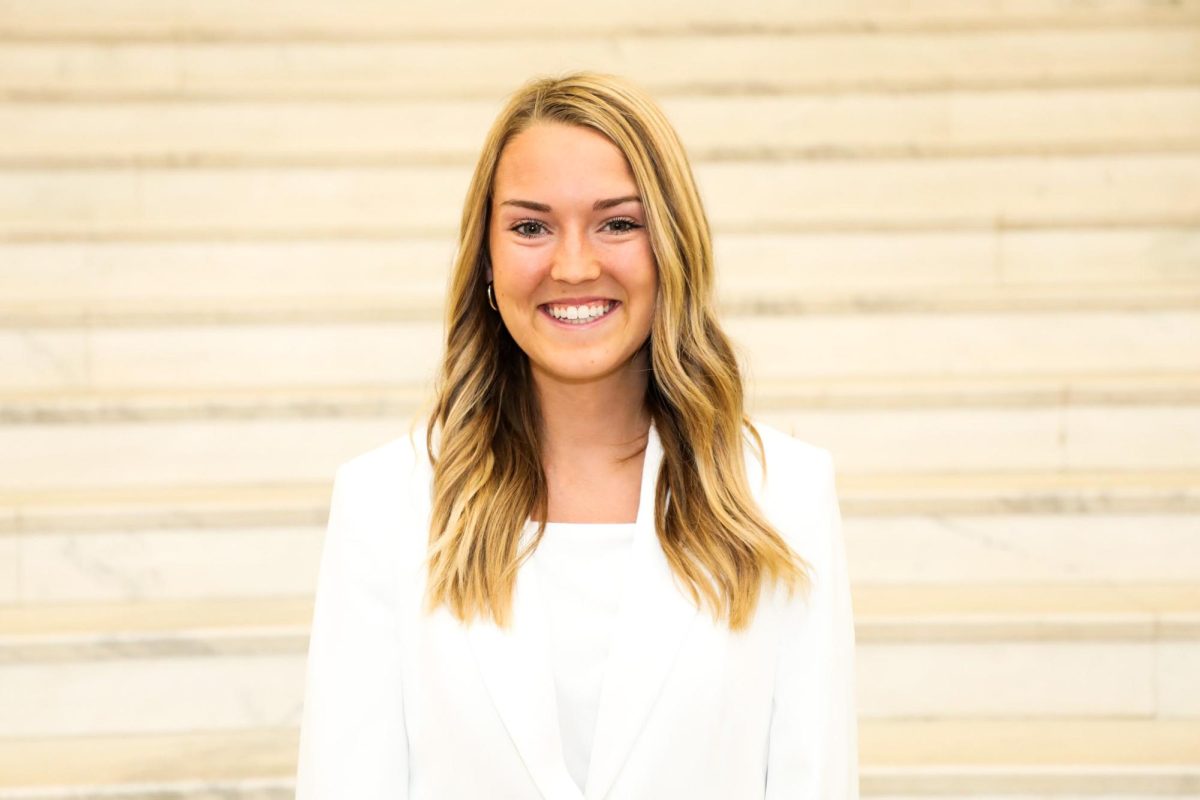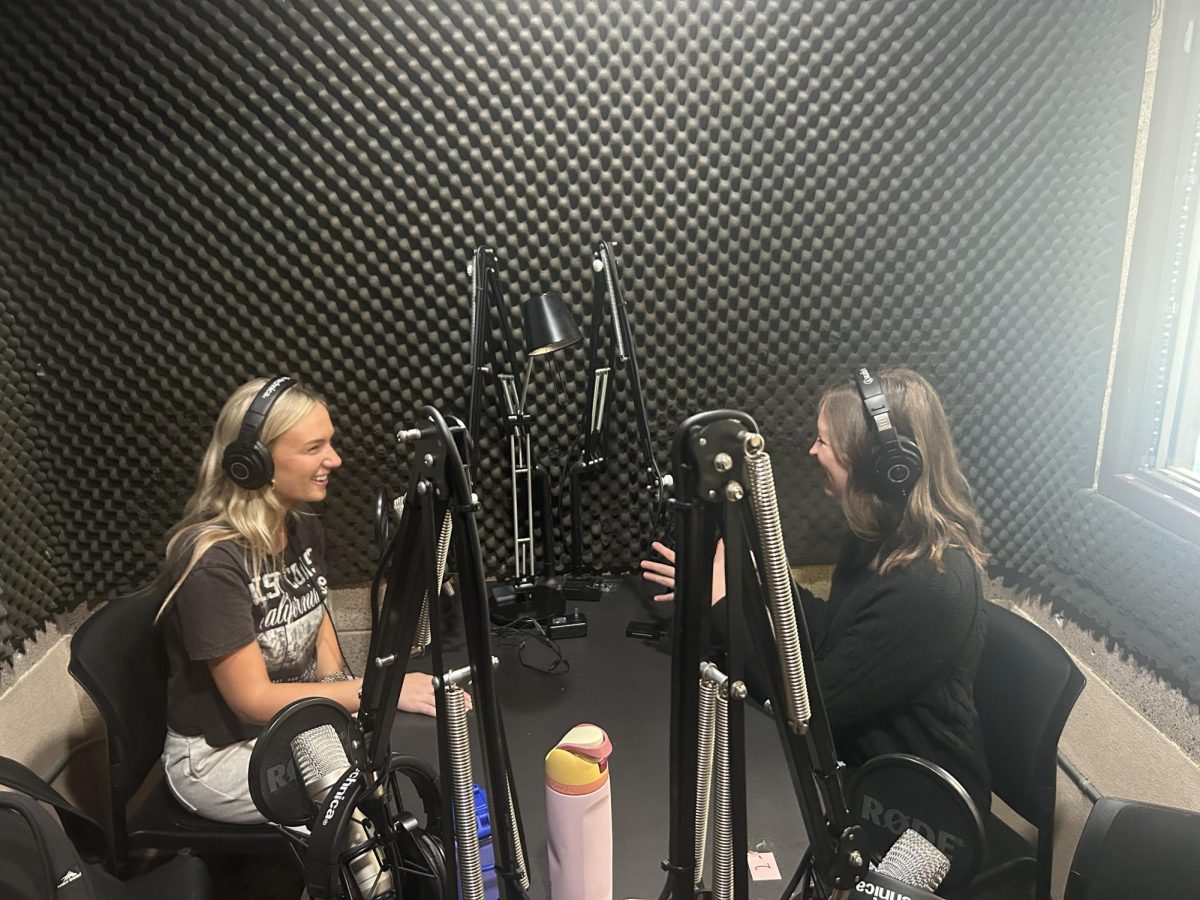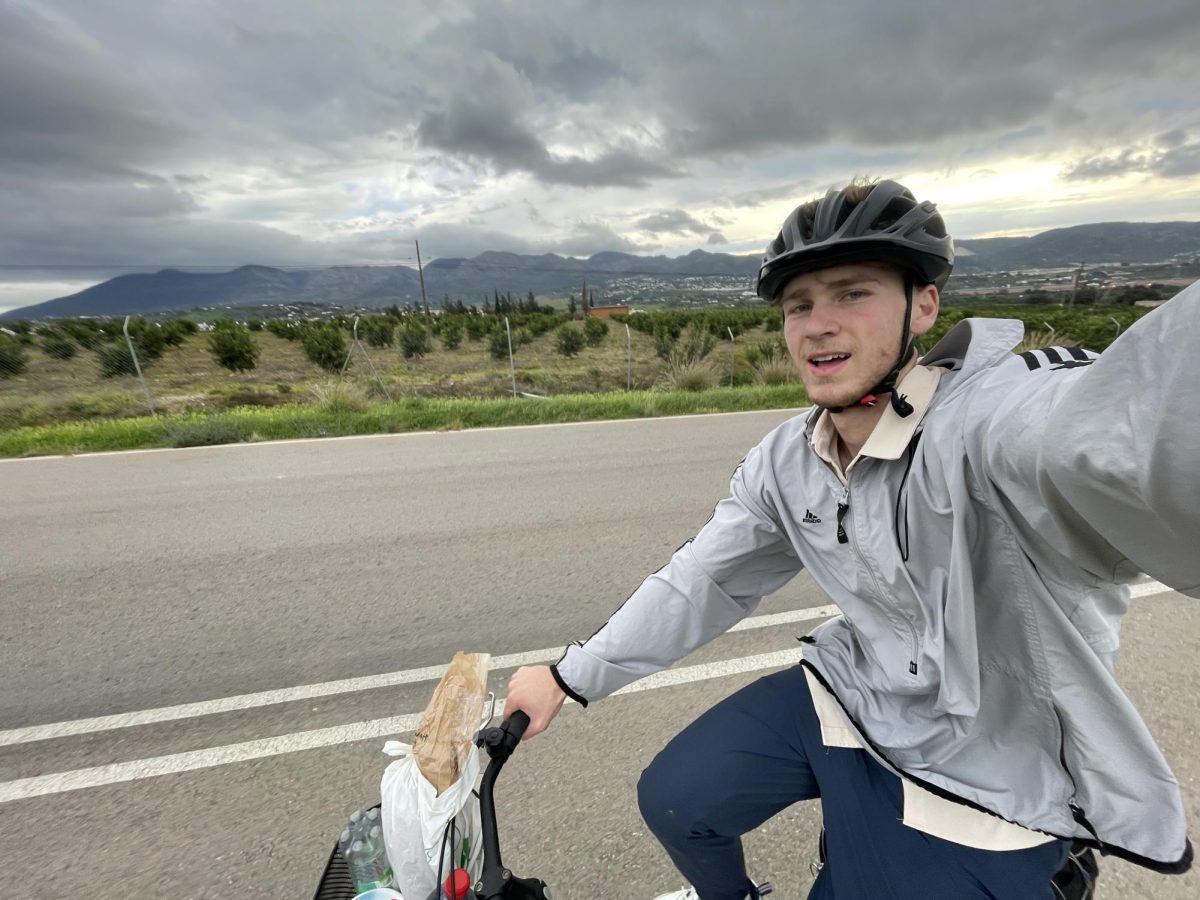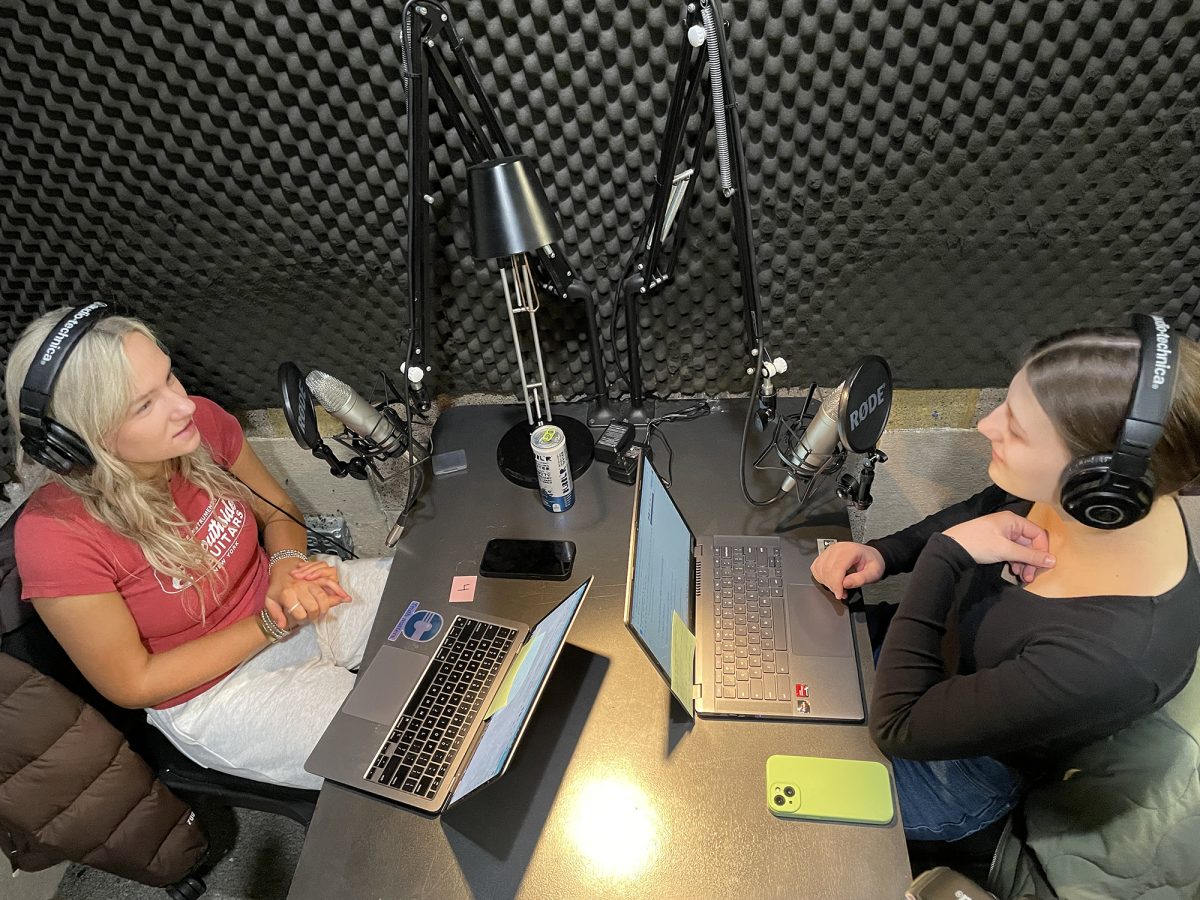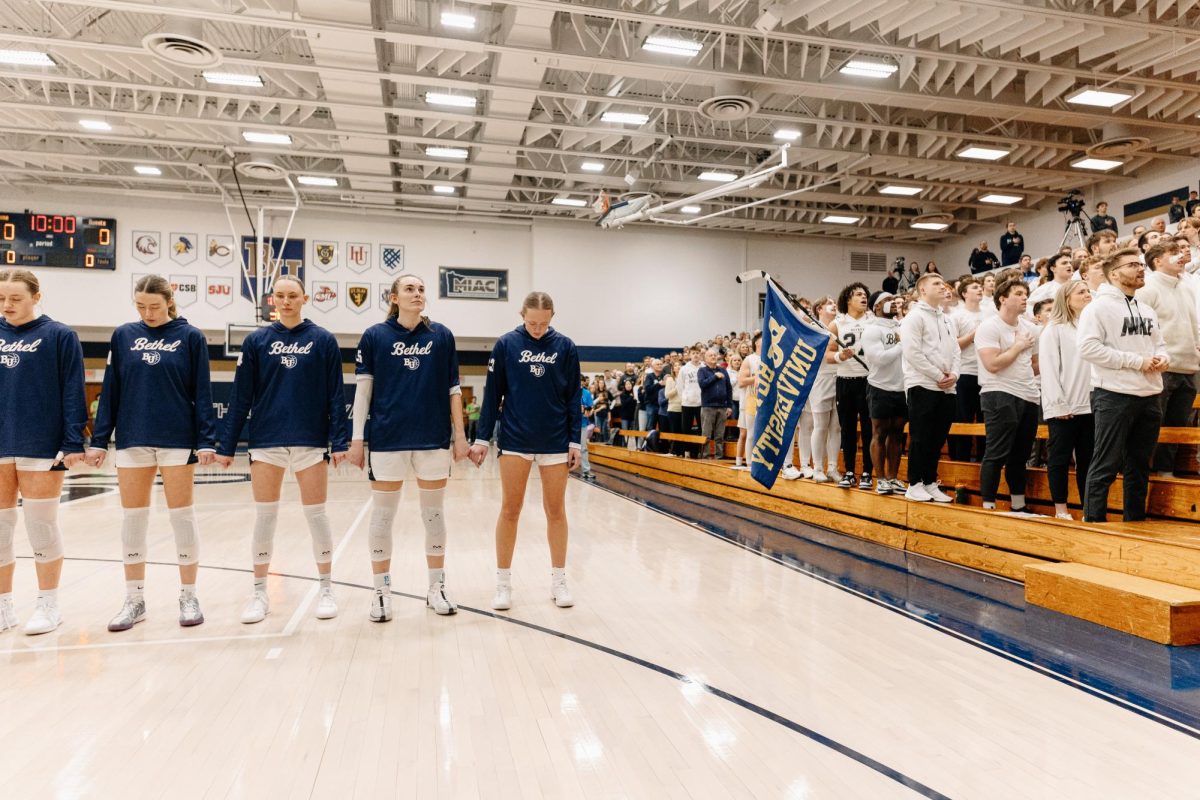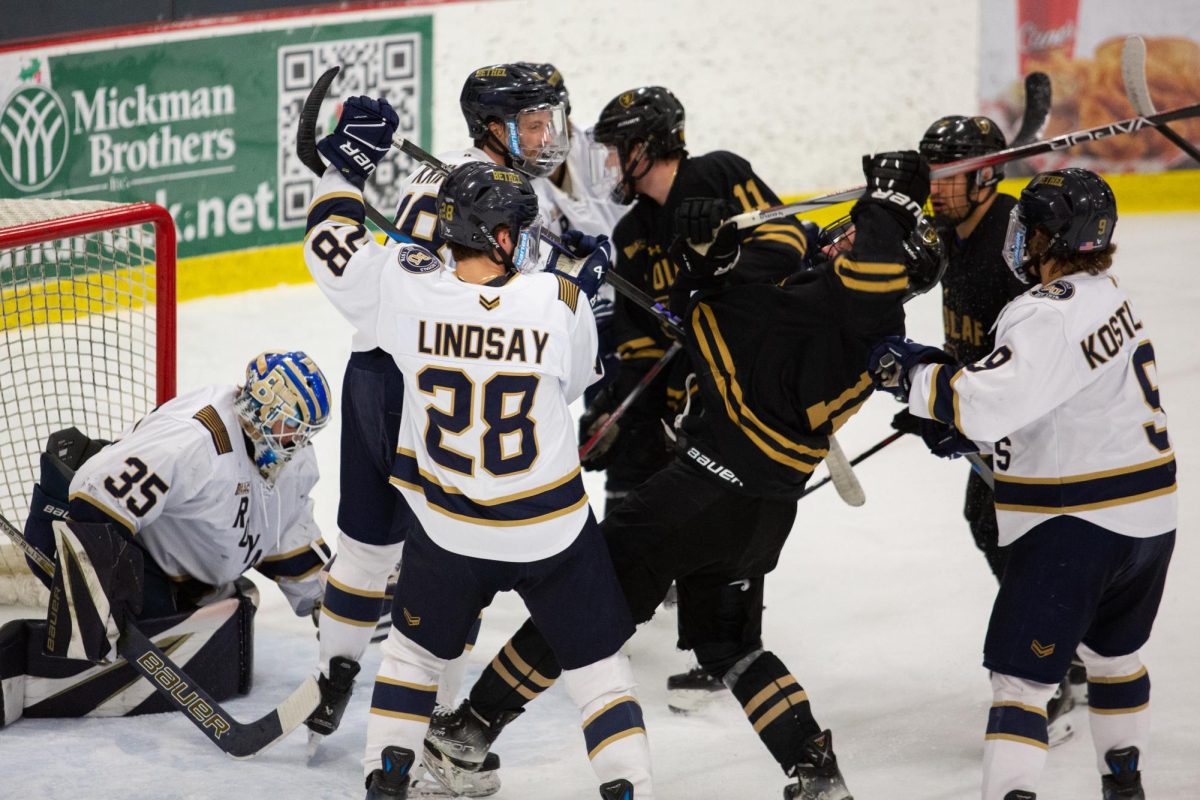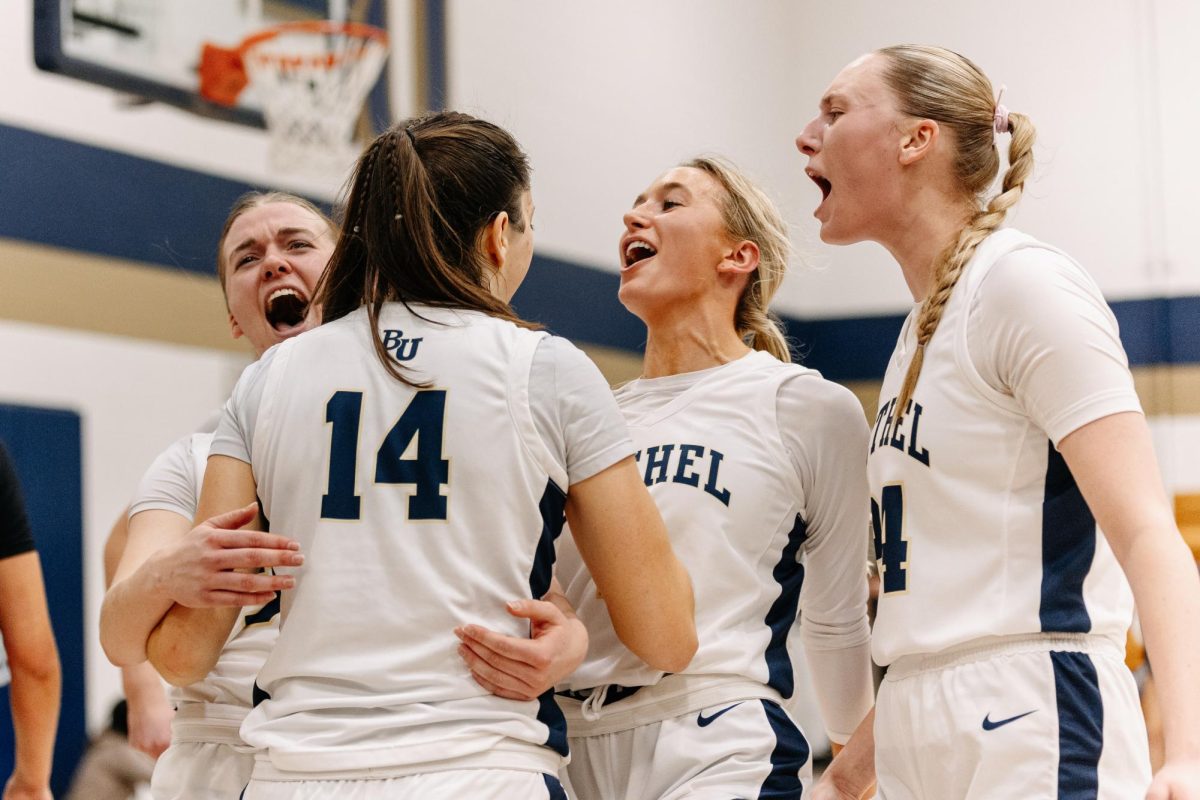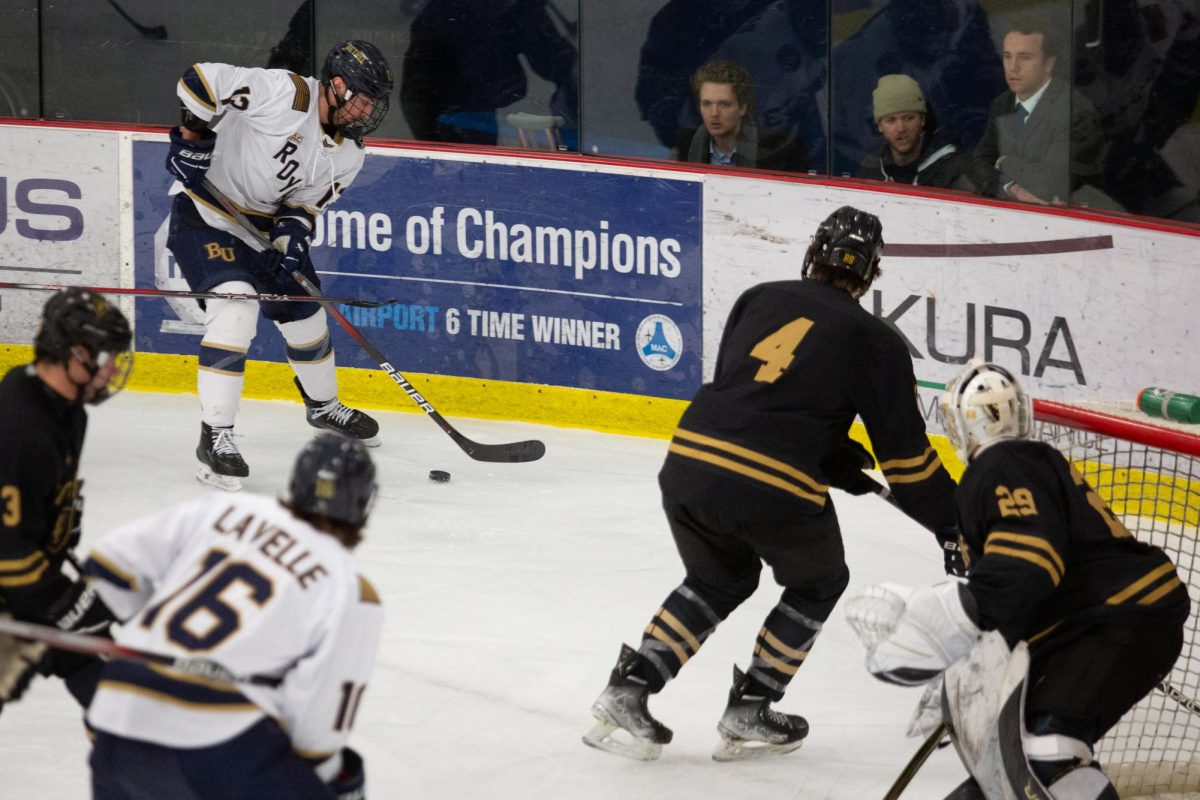Eboo Patel, the latest convocation speaker, formerly served on President Barack Obama’s Advisory Council on Faith-Based Neighborhood Partnerships and wrote the foreword to two Bethel professors’ book.
By Abby Petersen
At 10:15 a.m. on Mondays, Wednesdays and Fridays at Bethel University, the post office closes. The library lights flicker, then turn off and the doors are locked. The Royal Grounds coffee shop in the Brushaber Commons closes its folding gate. The university is buzzing with activity, but its offices are closed.
Everything is closed during chapel time, and every Bethel student knows it. The time usually means a space to worship and connect with God in Benson Great Hall, often featuring campus ministries staff, the university president or pastors.
A few times a year, this time and space is reserved for a different, but related use – convocation.
“The basic idea of convocation is that it’s different from but complementary to chapel worship services,” Convocation Committee Chair Mark Bruce said. “Where chapel is primarily about worship, and, of course, works from an entirely Christian standpoint, convocation is about bringing in speakers that have the expertise to speak to matters that are important to the whole community, regardless of faith tradition.”
Convocation is not a worship service, though it may feature Christian speakers. Speakers are brought to Bethel by the Convocation Committee, which is composed of faculty and campus ministries staff and serves as a facilitator for convocations, or assemblies, that engage the Bethel community with speakers from other faith traditions. This year’s convocation theme is “Fear-Courage-Change.”
In the fall, convocations featured local writer Nora McInerny and Christianity Today writer Amy Simpson.
On April 9, convocation hosted Eboo Patel, an American Muslim author, Rhodes Scholar and former member of President Barack Obama’s Inaugural Faith Council. Patel also founded the nonprofit Interfaith Youth Core and wrote the foreword to Bethel professors Sara Shady and Marion Larson’s book on interfaith dialogue, “From Bubble to Bridge: Educating Christians for a Multifaith World,” which was published in 2017. He lives in Illinois.

Interfaith was precisely what he spoke to the Bethel community about.
“In the history of this nation, our best moments have been when we see each other as contributors,” Patel said in his keynote address.
According to Patel, interfaith cooperation is a biblical idea. He told Jesus’ parable of the good Samaritan from the book of Luke.
“If you believe in American ideals, if you believe with George Washington that the bosom of this nation is opened to the oppressed of any nation and religion, all that we ask is you demean yourself a good neighbor,” Patel said.
In Larson and Shady’s book, Patel writes that evangelicals are often one of the hardest religious groups to engage in interfaith dialogue. Shady says that’s because evangelicals believe time spent with people of other religions should be used to evangelize.
“The quick summary answer we typically give is to help people think beyond a one-time sharing of faith and help them think about how to be in ongoing, meaningful, respectful relationships with people of different faith who live and work alongside us in our neighborhoods, classrooms, workplaces, etc,” Shady told The Clarion. “Also, we push people to think seriously about the relationship to love one’s neighbor well when that neighbor is from a different religion.”

Patel runs into the same fears from people of all religions, including evangelicals, who worry that interfaith dialogue is a violation of their religious beliefs. He gets the most pushback from people of his own religion.
“Interfaith is not about a dilution of your faith,” Patel said. “Interfaith is about something that evangelicals do extremely well, which is relationality. And evangelicals do something else really well, which is build social capital in a way that serves others.”
Why has a Rhodes Scholar and Oxford University devoted his career to promoting interfaith dialogue?
“We (Interfaith Youth Core) want the 21st century to be viewed as the century of interfaith America,” Patel said.
According to Patel, students who want to be interfaith leaders should take courses, start student groups and attend interfaith conferences.
Patel says his interfaith cooperation work has grown his own faith. He reads for 2 to 3 hours a day and confronts questions about Islam.
“I think that faith formation is largely going to happen in the context of diversity.”


